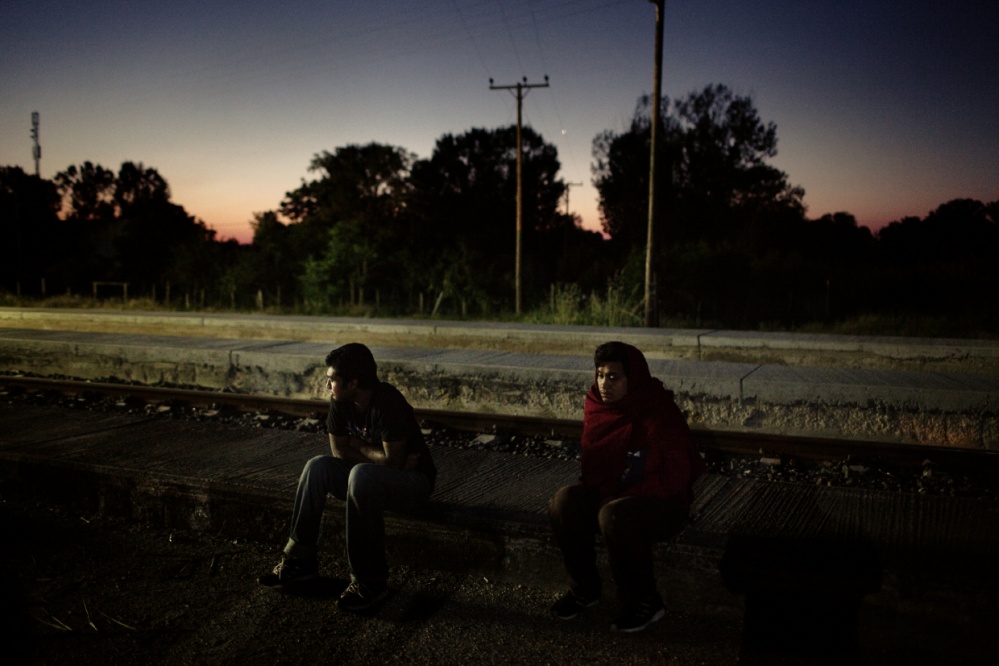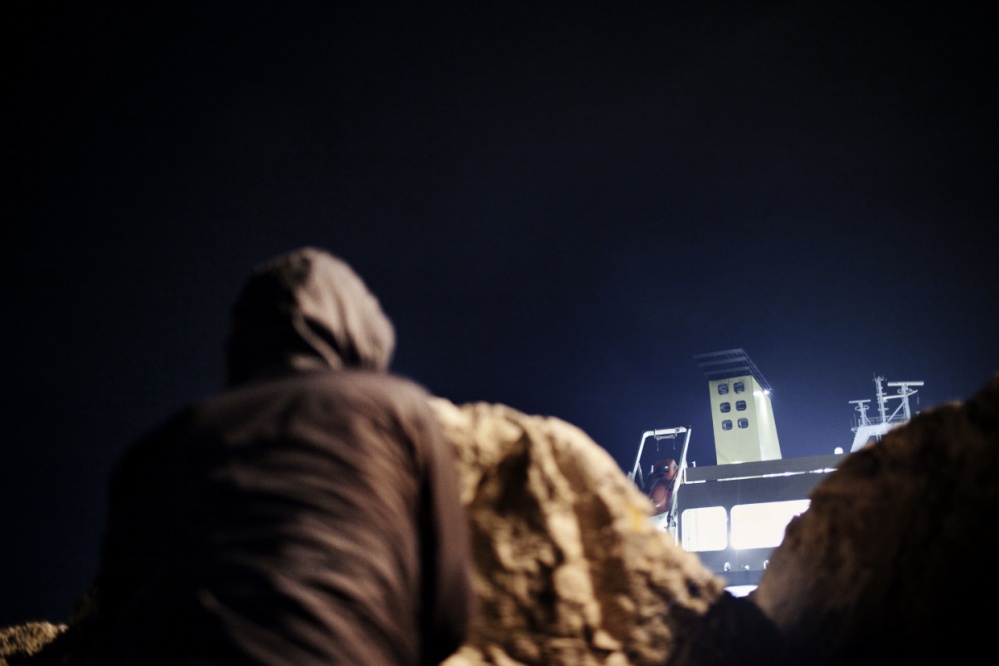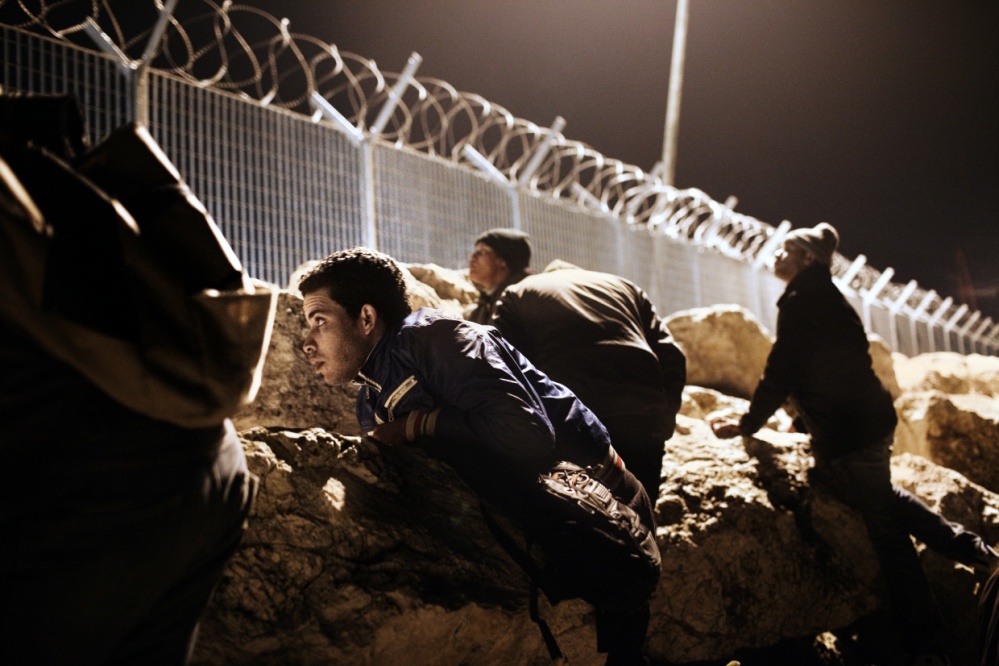Hundreds, thousand, hidden in the abandoned industrial areas that surround the port of Patras; I stayed with them in the old disused train station in the centre of Corinth; I found them in the ‘urban holes’ that dot the landscape of an Athens wounded by the crisis. They are the kids I followed for this project, some of whom are very young. After desperate journeys, they arrive from the wars which have tormented their countries in recent years. But war, for them, was only the beginning of the tragedy. Those who come from the Middle East and Central Asia try to reach Europe, the land I am lucky enough to call home, through its eastern door, Greece. They then get stuck there, amidst increasingly harsh security checks and racism which tragically often degenerates into neo-Nazi violence. For many, there is the hope of being able to rebuild the sort of life which would be impossible in their country of origin. The young Afghans I met are mainly fleeing the forced militarization practiced by the Taliban in Afghanistan, subsequent to the war that affected the country in 2001. For many others who are fleeing a scorching North Africa in revolt, the hope is to have the rights they were denied by the radicalization of the violence in their country of origin, recognized. Persecution for religious and ethnic reasons, or due to political opinion, could allow them to obtain refugee status in European Union countries, but certainly not in Greece. There, the rules are so tight that more than 99.5% of requests for asylum are refused. For this reason, they are forced to hide, because having a Greek police record would mean the end of the dream of safe reception in Europe. I learned that this is set out by the Dublin Regulation, the EU law with responsibility for granting asylum. According to the regulation, the country where a person is first identified is the country that has the duty and right to decide whether to grant refugee status or not, irrespective of where the application for asylum is made. Attempts to harmonize regulations on asylum in Europe have been dramatically swept away by the economic crisis. The Mediterranean countries have been the most affected by the flows and at the same time, have the fewest economic resources to manage them. What’s more, the difficult social conditions in these countries are providing an outlet for the phenomena of cultural closure, xenophobia and violence, which represent, for those who arrive, an insurmountable obstacle to obtaining the enjoyment of even the most basic human rights.
Image description:
Currently, there are more than one million immigrants living in Greece. Many, and in fact a very large number of them, are adolescents or barely over 18 – kids who have not been able to experience their youth, who are left to fend for themselves without the least bit of assistance once they have crossed the border and dispersed into Greek territory, and who are at the mercy of everything and everyone.
A group of about ten Afghans between 14 and 18 years of age are in a dilapidated bathing establishment in Patras. “We came to Patras because we want to leave Greece,” Sakir, a 17-year old Afghan, tells me. Every day, Sakir and his friends try to illegally get onto trucks that board boats for Italy. “I managed to get to Italy once, but the police found me in Ancona and sent me back… I was not allowed to speak with
anyone who understood me!”. He says to me, “Now I travel with a razor blade, so that the next time I get there, I’ll cut my face and they will have to take me to hospital. Right?”
Sakir has been in Greece for more than six months and does not have the faintest idea
of what ‘political refugee’ means.
In Corinth, a small sea town on the Peloponnese, the boarding of boats directly is attempted, at least by group of North Africans who have established themselves in an old train station. But Golden Dawn, the new current of xenophobia, has taken strong roots in Corinth.
Mostafa, a 20-year old Moroccan, says to me, “Yesterday they came to shoot rubber bullets at us. We don’t know what to do or who to get to help us.”
On 18 February 2012 in Corinth, the group was attacked by three locals. Mostafa El Mouzdahir, was hit by a car and sustained multiple injuries.
I witnessed the attack and later went to see him in hospital. With him, he had a police form which asked him to leave the country within 15 days because he was there illegally.
Others stay in the capital because they get tangled up in bureaucracy for years, seeking to obtain permits to remain in Europe legally. They end up living on the outskirts of Athens or in old buildings. A., a 16-year old Afghan, lives in a disused Columbia Records factory.
“I left my country thanks to my parents’ savings,” he said to me. He manages to speak with his parents every now and then. “They always ask me about my brother, but for more than a year now I don’t know what has become of him.”


































